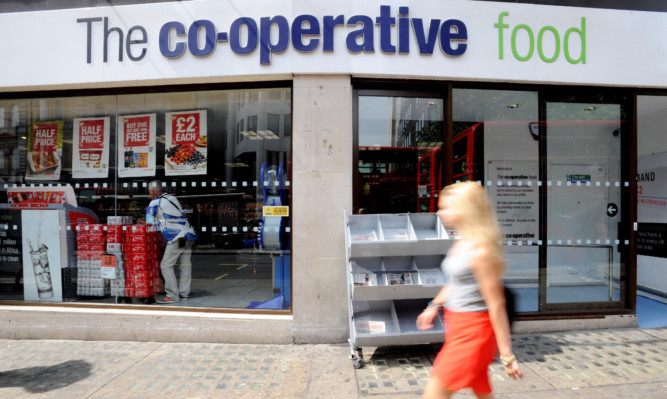The Co-operative Group returned to profit for the first half of the year but warned annual results would see a drop in earnings due to a three-year recovery plan.
Pre-tax profits for the 26 weeks to July 4 rose to £36 million compared with a loss of £9m a year earlier.
It comes after a troubled few years for the sprawling food-to-funerals group, which posted a loss of £2.3 billion for 2013 after it was dragged down by the near-collapse of its banking arm.
The supermarket business saw sales growth of 0.8% and posted a 21% rise in underlying profits to £120.4m during a period when 35 new convenience stores were opened and 1,000 new workers recruited.
It now expected “to overcome deflation in the marketplace to generate further like-for-like sales growth” in its food stores despite the supermarket price war pulling down sales at larger rivals.
The group said funeralcare had its busiest start to the year since 2008 with business boosted by a higher death rate.
General insurance swung into profit compared to a loss last year, thanks to a lower volume of claims.
Capital spending increased by 48% to £144m as convenience stores and 10 new funeral homes were opened.
Other investments, as well as higher pension costs, also increased spending.
Given these increases, the group said it did not expect to announce dividends until 2018 at the earliest.
It added: “We expect full-year profitability to reduce year-on-year, given the planned and increased levels of investment we are making in the second half of the year to support our rebuild strategy.”
Chief executive Richard Pennycook said: “We’ve made a good start on the three-year journey to rebuild the Co-operative Group.
“These early days are about fixing the basics putting in place new leadership teams and providing the investment to deliver the strategies for our businesses.
“Our customers and members are beginning to see the difference.”
Co-op chairman Allan Leighton said commercial improvements made in the first half of this year have gone hand in hand with the further strengthening of the board, council and senior management teams.
The latest results are the first since radical changes to the business were brought in at the end of last year.
The number of board members was slashed and directors had to have qualifications suited to running the business.
The group is raising pay by 8.6% for its 47,000 frontline shop staff, meeting the Government’s national living wage.
